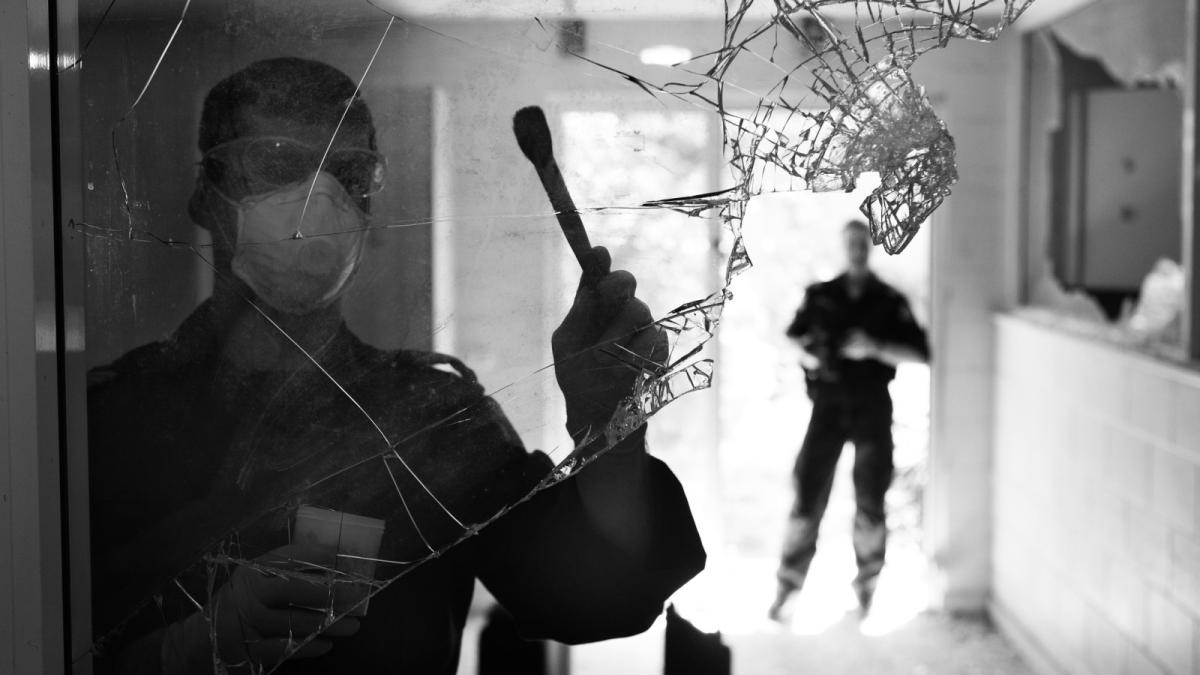Page Contents
Main Content
Shoplifting accounts for a large percentage of reported annual shop losses. Shoplifters come from all walks of life and from all socio-economic backgrounds. They generally fall into one of two groups – amateurs or professionals.
- Amateur shoplifters usually steal on impulse (e.g. young people who steal to impress their friends).
- Professional shoplifters are more likely to work in pairs or groups, although they will work alone. They often steal to obtain a false refund for the items and have often 'cased out' a store before stealing.
To help prevent shoplifting, consider the following:
- Store Layout and Design
- Staff Education and Training
- Business Policy and Procedure
There are also a number of strategies to keep in mind when confronted with shoplifters, these include:
- Dealing with Shoplifters
- Reporting Incidents to the Police
Store layout and design
Consider the following in your business:
- Make the store layout as open as possible
- Have good visibility between aisles or areas
- Keep shelves tidy and goods neatly stacked
- Using surveillance mirrors can assist staff in monitoring awkward or hidden areas
- Consider CCTV and have it connected to a recording device
- If appropriate, consider having in-store security guards
- Where possible, lock expensive and easily portable goods in cabinets
- Stack goods tightly on your shelves, so that removal takes longer
- Limit the entry and exit points to the store
- Clearly display signs that state that police will be called if anyone is caught stealing
- Clearly display signs explaining your bag-checking policy
- Limit access to keys for locked cabinets
- Keep Cash to Low Levels and use safe cash handling procedures
- Staff should lock away personal items (Bags & Wallets etc.).
Staff education and training
Ensure your staff members understand:
- The store policy on both bag-checks and stealing
- Management’s expectations of them under these policies
- Store procedures to follow when dealing with a possible shoplifter
- That the value of goods stolen can never outweigh the value of the health and well being of employees.
Encourage staff to:
- Greet customers as they enter the store
- Ask “Can I help you?”
- Regularly tidy shelves and pathways
- Pay attention to nervous or jumpy customers, people looking around in surveillance mirrors, groups, and customers who try to distract or draw staff away.
Business policy and procedure
It may be your store’s policy to conduct bag inspections; however, you do not have a legal right to search a person’s bag or property. The person DOES NOT commit an offence by refusing to have their bag searched.
Clearly display signs that explain your store’s policy, e.g. 'All bags must be presented for inspection before leaving the store'. Ensure that your staff know store policies and procedures for dealing with suspected shoplifting incidents.
Dealing with shoplifters
While it may be lawful to arrest a person in certain situations it is recommended good practice to have that person assist voluntarily.
Cooperation is a better strategy than the legal ramifications associated with an arrest. It is suggested that independent legal advice be sought about making arrests in this regard.
If the situation causes danger to you, your staff or customers, do not approach the shoplifter. The value of goods can never exceed the value of your life.
If the suspected shoplifter agrees to remain with you:
- Explain who you are (e.g. the manager, store security guard) and show identification
- Tell the person why they are being spoken to and ask them to accompany you back into the store
- You do not have a legal right to use force unless the person has been arrested (force in this sense means a degree of force that any reasonable person would use if faced with the same situation)
- It is recommended that you do not physically touch the suspected shop lifter
- Advise the person that the police will be called
- Ask the person to surrender any property which does not rightfully belong to them
- You are not entitled to conduct searches of the person
Reporting incidents to the police
Report all incidents to the police. Police cannot help you counter shoplifting problems if they don’t know you are experiencing them. If a crime is in progress, or there is risk to life or well-being, call 000.
If it is after the event and/or you would like to report incidents of stealing where the person left your store some time ago, call Policelink on 131 444 or your local police station. Provide accurate information to the police about the circumstances surrounding the offence.
You will need to give police as many of the following details as you can including:
- Your name
- Your location and the nearest street intersection
- Your contact telephone number
- Type of incident (e.g. shoplifter)
- The full name and date of birth of the offender (if you have it)
- The offender’s current behaviour
Police will determine whether there is sufficient evidence to support charges. They may ask you to give a statement describing what you saw, heard, said, did, or touched
